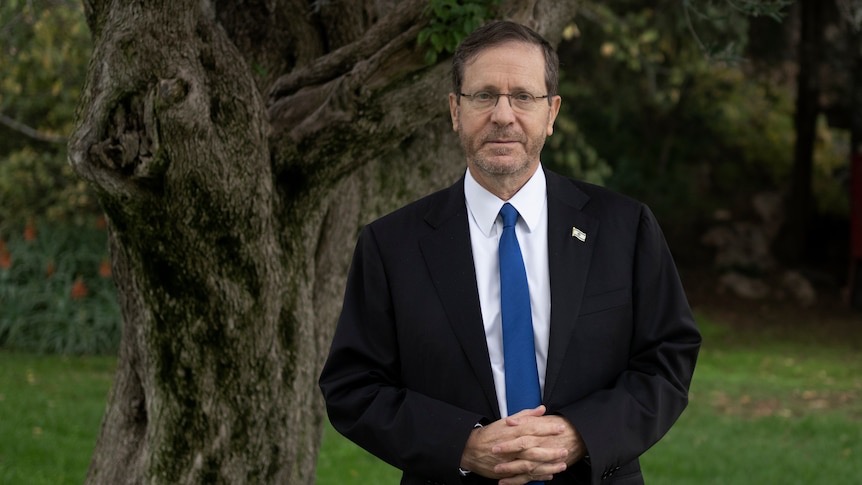UPDATES
Is Bibi getting a bad rap?
November 10, 2011 | Tzvi Fleischer

As readers may have seen reported, a private conversation between US President Barack Obama and French President Nicolas Sarkozy at Cannes last week was accidentally overhead by reporters. In it, the two were talking rather unflatteringly about Israeli PM Binyamin Netanyahu. According to the reports, Sarkozy said of Netanyahu “I can’t stand him anymore, he’s a liar” while Obama responded, “You may be sick of him, but me, I have to deal with him every day.”
This story has sparked a fair amount of comment from various quarters concerning what it says about the relationship between Obama and Netanyahu (which all informed observers already knew was hardly notable for its warmth), and the wider US-Israel relationship. Particularly interesting was a response from Jackson Diehl of the Washington Post, who asks whether Netanyahu’s stance on the peace process justifies the hostility expressed by the two Presidents. He argues:
Though Netanyahu has never been an easy partner for Western leaders, it’s hard to see why he would inspire so much animus from the two presidents now.
Since taking office in early 2009, around the same time as Obama, Netanyahu has been mostly responsive to the U.S. president’s initiatives despite heading a rightwing coalition that views concessions to the Palestinians with distaste, to say the least. Early on he announced his acceptance of Palestinian statehood, something he has never done; he responded to Obama’s misguided demand for a freeze on Israeli settlements in the West Bank and Jerusalem by imposing… ten-month* moratorium.
Earlier this year Netanyahu reacted angrily when Obama blindsided him with a speech publicly calling on Israel to accept a territorial formula for a Palestinian state based on its pre-1967 borders, with swaps of territory. Less noticed is the fact that the Israeli prime minister has since accepted those terms.
Though Netanyahu has recently allowed new settlement construction, it mostly has been in neighborhoods that Palestinian leaders have already conceded will be part of Israel in a final settlement. This week he told his cabinet that West Bank outposts declared illegal by the Israeli Supreme Court would be uprooted.
In other words, Netanyahu has been an occasionally difficult but ultimately cooperative partner. He can be accused of moving too slowly and offering too little, but not of failing to heed American initiatives. And Palestinian President Mahmoud Abbas? For… nine of the ten months* of the Israeli settlement moratorium he refused Obama’s appeals to begin negotiations; after two meetings, he returned to his intransigence. Rejecting a personal appeal from Obama, he took his bid for statehood to the United Nations, where he may yet force the United States to use its Security Council veto…
Abbas, it’s fair to say, has gone from resisting U.S. and French diplomacy to actively seeking to undermine it. Yet it is Netanyahu whom Sarkozy finds “unbearable,” and whom Obama groans at having to “deal with every day.” If there is an explanation for this, it must be personal; in substance, it makes little sense….
Similarly, former senior American Middle East official turned academic Elliot Abrams ponders what Netanyahu could do to improve his image, and notes:
If Prime Minister Netanyahu were to ask a fair-minded, balanced, sensible adviser what he could realistically do to win the confidence and approbation of President Obama, the answer would have to be “nothing.”
He then points out that Netanyahu recently made some additional verbal concessions in a speech to the Knesset, as well as, Diehl noted, is making the politically difficult move to crackdown on illegally-built “outposts” in the West Bank, yet seems to get no credit for any of his efforts with the administration in Washington. (Another similiar view comes from British columnist Melanie Phillips).
On settlements, both Diehl and Abrams might also have noted that Netanyahu has overall allowed less building in the settlements than his predecessor Ehud Olmert (See here and here), who generally had a more positive reputation in the West.
Part of the explanation for the dislike of Netanyahu is doubtless personal – it is hardly a secret in Israel that Netanyahu can be a bit prickly and difficult – as argued by Washington Jewish Week writer Adam Kredo:
By talking smack about Bibi, Obama could be saying that he’s simply fed-up with what he views as an obstructionist Israeli government. However, I don’t see that in Obama’s pithy comments. In all likelihood, Obama is expressing his frustration with Netanyahu himself — a leader who’s been known to be quite difficult to handle.[sic]
However, I am inclined to think there is more to than simple poor chemistry. In my experience, it is certainly true that in the media, leaders of the Israeli right, and especially the Likud, such as Netanyahu, are subject to vastly more questioning of their motives, and outright discounting of pro-peace moves they make than those seen as from the left or centre, even when the content of their actions is ostensibly quite conciliatory. For many commentators and journalists, it seems to be assumed that is obvious that the Israeli right and the Likud are The Obstacle to Peace, and should be treated as such, no matter what they actually do or say. And I strongly suspect similar assumptions operate among both government officials and the elected policymakers they advise.
Now, to be fair, both Netanyahu and much of the Likud do have fairly strong past records of opposing a two-state peace deal. However, I do not think even many ostensibly informed outside observers appreciate how much the entire Israeli political spectrum has shifted to the left on peace issues over the last 15 years. (In fact, one hears the opposite – that Israel has been shifting to the right, which is completely misinformed and ahistorical.)
Veteran Israel columnist Evelyn Gordon has an excellent post earlier this week illustrating this by quoting from the last Knesset speech of assassinated Israeli Prime Minister Yitzhak Rabin before his murder by a Jewish fanatic on November 4, 1995. Gordon conclusively demonstrates that the “right-wing” Netanyahu of today is well to the left, on peace issues, of where the “left-wing” Rabin, whose status as a peacemaker cannot be doubted, was just prior to his death.
Tonight, as Israel’s memorial day for slain Prime Minister Yitzhak Rabin begins, is a good time to debunk a myth that has recently gained great currency: that Israel’s population has become increasingly right-wing, constituting a major obstacle to peace…
Yet Rabin himself, the idol of those who propagate this myth, provides the best possible refutation of it. All you have to do is read his final speech to the Knesset, given one month before his death, to realize how far to the left Israel has traveled since then.
For instance, Rabin envisioned a final-status solution in which Israel lived alongside a Palestinian “entity which is less than a state.” Today, even the “right-wing” Prime Minister Benjamin Netanyahu openly advocates a Palestinian state.
Rabin envisioned “united Jerusalem, which will include both Ma’ale Adumim and Givat Ze’ev [two nearby settlements],” as “the capital of Israel, under Israeli sovereignty.” Since then, two Israeli prime ministers have offered to give the Palestinians East Jerusalem, including the Temple Mount and most of the Old City.
Rabin declared that Israel’s “security border … will be located in the Jordan Valley, in the broadest meaning of that term.” Since then, two Israeli premiers have offered to give the Palestinians almost all the West Bank, including the Jordan Valley; even the “right-wing” Netanyahu reportedly agreed to negotiate borders based on the 1967 lines.
Rabin listed Gaza’s Gush Katif as one of the settlement blocs Israel would retain. Since then, Israel has withdrawn from every inch of Gaza.
Rabin pledged “not to uproot a single settlement in the framework of the interim agreement, and not to hinder building for natural growth.” Since then, Israel has uprooted 25 settlements (21 in Gaza and four in the West Bank) without a final-status agreement, while the “right-wing” Netanyahu instituted Israel’s first-ever moratorium on settlement construction (for 10 months), including “building for natural growth.”Israeli public opinion has also moved dramatically leftward. Two decades ago, for instance, a Palestinian state was anathema to most Israelis; the idea was entertained only on the far-left fringe. Today, polls consistently show overwhelming support for a Palestinian state on almost all the West Bank and Gaza.
On only one issue have Israelis actually moved rightward: Far fewer now believe the “peace process” will ever produce peace. In April 1996, for instance, 47 percent expectedIsraeli-Palestinian peace to be achieved “in the coming years,” while 32 percent did not. In October 2011, only 32 percent foresaw peace being achieved anytime soon, while 66 percent did not. The latter results have been roughly consistent for years now.
That, however, has nothing to do with Israelis becoming more “nationalistic” or “religiously conservative” and everything to do with hard experience: Since 1993, Israel has evacuated Lebanon, Gaza and large chunks of the West Bank only to see all three become bases for murderous anti-Israel terror, while its Palestinian “peace partner” has steadfastly refused to recognize a Jewish state or cease demanding to destroy it through an influx of millions of Palestinian “refugees.”
I believe that if more people appreciated this reality better, not only would Netanyahu be less misunderstood, whatever his personal qualities, but world leaders like Obama and Sarkozy would be much better able to formulate policies that would genuinely create the pre-conditions for significant progress toward a two-state peace.
Tzvi Fleischer
Tags: Israel





